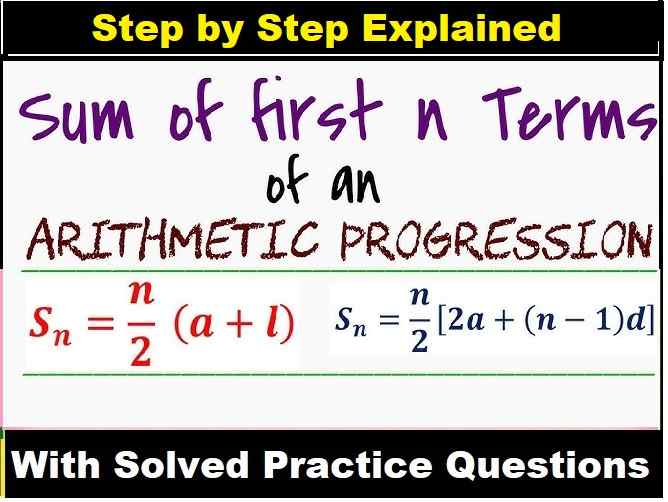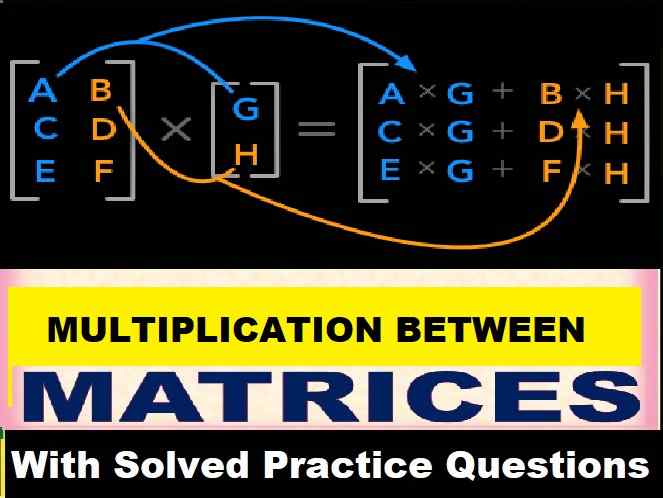Banking Class 10 RS Aggarwal Exe-2 Goyal Brothers Prakashan ICSE Foundation Maths Solutions Ch-2. Step by step solutions of Banking questions as latest prescribe guideline for upcoming exam. Visit official Website CISCE for detail information about ICSE Board Class-10.

Banking Class 10 RS Aggarwal Exe-2 Goyal Brothers Prakashan ICSE Foundation Maths Solutions Ch-2
| Board | ICSE |
| Publications | Goyal Brothers Prakashan |
| Subject | Maths |
| Class | 10th |
| Chapter-2 | Banking |
| Writer | RS Aggarwal |
| Book Name | Foundation |
| Topics | Solution of Banking Exercise Questions |
| Edition | 2024-2025 |
Page- 19,20
Banking Exercise Questions
Class 10 RS Aggarwal Exe-2 Goyal Brothers Prakashan ICSE Foundation Maths Solutions Ch-2
Exercise-2
Que-1: Mrs. Goswami deposits Rs1000 per month in a recurring deposit account for 3 years at 8% interest per annum. Find the matured value.
Solution- P = 1000
T = 3 years
n = 12×T
= 12×3 = 36
R = 8%
M.V = Pn + [{P×n(n+1)xR}/{2×12×100}]
= (1000×36) + [{1000×36×37×8}/{24×100}]
= 3600 + 4440
= 40,440
Hence Matured value = Rs.40440 Ans.
Que-2: Inderjeet opened a cumulative time deposit account with Punjab National Bank. He deposited Rs360 per month for 2 years. If the rate of interest be 7% per annum, how much did he get at the time of maturity?
Solution- P = Rs.360
R = 7% per annum.
Time = 2 years = 24 months = n
Maturity value = (P * n) + [P * {n(n+1)/2} * {R/(12 * 100)}]
Maturity value = (360 * 24) + [360 * (24 * 25/2) * {7/(12 * 100)}]
→ Maturity value = 8640 + 360 * 300 * {7/(12 * 100)}
→ Maturity value = 8640 + (360 * 7)/4
→ Maturity value = 8640 + 630
→ Maturity value = Rs.9270 Ans.
Que-3: (i) Neema had a recurring deposit account in a bank and deposited Rs600 per month for 2*(1/2) years. If the rate of interest was 10% per annum, find the maturity value of this account.
(ii) Sajal invested Rs600 per month for 2*(1/2) years in a recurring deposit scheme of Oriental Bank of Commerce. If the bank pays simple interest at 6*(2/3)% per annum, find the amount received by him on maturity.
Solution- (i) Maturity value for the recurring deposits = Total Sum of Money deposited + Interest earned on it.
P = Amount deposited every month
n = number of months the deposits were made
r% = rate of interest
M.V = Pn + [{P×n(n+1)xR}/{2×12×100}]
Here, P = Rs.600, n = 30, r = 10%
Maturity Value = (600×30) + [{600×30(30+1)x10}/ (2×12×100)]
= Rs.20325 Ans.
(ii) Total Money Deposited = 600*30 months = Rs.18000
Interest = (600*30*31*20)/(3*2400)
= Rs.1550
Maturity value = Money Deposit + Interest
= Rs.19550 Ans.
Que-4: Mr. Richard has a recurring deposit account in a bank for 3 years at 7.5% per annum simple interest. If he gets Rs8325 as interest at the time of maturity, find : (i) the monthly deposit (ii) the maturity value.
Solution- (i) Let the deposit per month = Rs.P
Number of months (n) = 36
Rate of interest (r) = 7.5% p.a.
:. S.I = [𝑃×𝑛(𝑛+1)]/(2×12)×𝑟/100
⇒ 8325 = [𝑃×36×37]/(2×12)×7.5/100
⇒ 8325 = (𝑃×3×37)/2×7.5/100
⇒ 𝑃 = (8325×2×100)/(3×37×7.5)
= 𝑅𝑠2000 Ans.
(ii) Maturity value = P x n + S.I
= Rs. (2000 x 36 + 8325)
= Rs. 80325 Ans.
Que-5: Katrina opened a recurring deposit account with a Nationalised Bank for a period of 2 years. If the bank pays interest at 6% per annum and the monthly installment is Rs1000, find :(i) interest earned in 2 years (ii) matured value.
Solution-Katrina deposits 1000 per month for 2 years
Total money deposited = 1000×24
Rate of interest = 6% p.a
Equivalent principal = [1000×24(24+1)]/2
(1000×24×25)/2
= Rs(1000×12×25)
(i) Interest = (P×R×T)/100
= (1000×12×25×6)/100×1/12 = Rs1500 Ans.
(ii) Matured value = 24000 + 1500
= Rs 25500 Ans.
Que-6: Ahmed has a recurring deposit account in a bank. He deposits Rs2500 per month for 2 years. If he gets Rs66250 at the time of maturity find : (i) the interest paid by the bank (ii) the rate of interest.
Solution- (i) P = Rs. 2500,
n = 2 years = (2 × 12) months= 24 months
Total Principal = Rs. 2,500 × 24 = Rs. 60,000,
Amount = Rs. 66,250
Interest = Amount – Principal
= Rs. 66,250 – Rs. 60,000 = Rs. 6,250
Thus, the interest paid by the bank is Rs. 6,250 Ans.
(ii) Let r be the rate of interest.
N = [𝑛(𝑛+1)]/(2×12)
= (24×25)/(2×12) = 25 year
This is equivalent to depositing Rs. 2,500 for 25 yrs.
Interest = (𝑃×𝑁×𝑅)/100
⇒ 6250 = (2500×25×𝑅)/100
⇒ 𝑅 = 10%
Thus, the rate of interest is 10% Ans.
Que-7: Mr. Gupta opened a recurring deposit account in a bank. He deposited Rs2500 per month for 2 years. At the time of maturity he got Rs67500. Find : (i) the total interest earned by Mr. Gupta
(ii) the rate of interest per annum.
Solution- (i) Monthly instalment = Rs. 2500
n = 24,
Amount deposited = 2500 x 24 = Rs. 60000
Maturity value = Rs. 67500
Interest on his deposit = Rs. (67500 – 60000) = Rs. 7500 Ans.
(ii) Now Interest = [n(n+1)]/2 × (Instalment×Rate)/(100×12)
7500 = (24×25)/2 × (2500×R)/(100×12)
R = (7500×100×24)/(24×25×2500) = 12% p.a Ans.
Que-8: Mr. Thomas a 4 year cumulative time deposit account in Corporation Bank and deposits Rs650 per month. If he receives Rs36296 at the time of maturity, find : (i) the total interest earned by Mr. Thomas (ii) the rate of interest per annum.
Solution- (i) P = Rs. 650,
n = 4 years = 48 months,
A = Rs. 36296
I = {Pn(n+1)}/(2×12) x r/100
= (650 × 48 × 49) × 8/2400
= Rs.5096
(ii) A = Pn + {Pn(n+1)}/(2×12) x r/100
36296 = (650 × 48) + (650 × 48 × 49) × r/2400
5096 = 637r
r = 8% p. a.
Que-9: Tanvy has a recurring deposit account in a finance company for 1.5 years at 9% per annum. If she gets Rs15426 at the time of maturity, how much per month has been invested by her?
Solution- n = 1.5 years = 18 months
r = 9%
MV = Rs15426
MV = {(𝑃×𝑛) + n(𝑛+1)}/(2×12) × 𝑟/100
15426 = {(𝑃×18) + (𝑃×9×18×19)/(2×12×100)
15426 = P (18 + 1.2825)
P = 15526/19.2825
P = Rs800 Ans.
Que-10: Punam opened a recurring deposit account with Bank of Baroda for 1.5 years. If the rate of interest is 6% per annum and the bank pays Rs11313 on maturity, find how much Punam deposited each month ?
Solution- n = 1.5 years = 18 month
r = 6% p.a.
MV = Rs11313
Let the principle be P
Interest = [P × n(n+1)]/2 × (r×t)/100
= [P×18(18+1)]/2 × (6/100) × (1/12)
= [P×18×19]/2 × 1/(2×100)
= (P×342)/400
I = 0.86P−−−−(i)
MV = Pn + I
11313 = Px18 + 0.86P
11313 = 18P + 0.86P
11313 = 18.86P
P = 11313/18.86
P = Rs600 Ans.
Que-11: Kavita has a cumulative time deposit account in a bank. She deposits Rs800 per month and gets Rs6165 at the time of maturity. If the rate of interest be 6% per annum. Find the total time for which the account was held.
Solution- Interest = [P × n(n+1)]/2 × r/100
SI = Principal amount – ( monthly deposit × number of months)
SI = 6165 – 600×n
6165 – 600×n = [600xn(n+1)x6]/(12x2x100)
6165 – 600×n = 3/2[n² + n]
6165 – 600×n = 1.5n² + 1.5n
1.5n² + 601.5n – 6165 = 0
the above quadratic equation,
n = -601.5 ± [-601.5 ± √{(601.5)² + 4 x 6165}]/(2 x 1.5)
n = 30/3
n = 10 months. Ans.
Que-12: Kavita has a cumulative time deposit account in a bank. She deposits Rs800 per month and gets Rs16700 as maturity value. If the rate of interest be 5% per annum, find the total time for which the account has held.
Solution- Let time be x months
SI = [400x(x+1)*5*1]/1200
= (1/3)x(x+1)*5
= (5/3)x(x+1)
Principal = 800x
Hence,
800x + (5/3)x(x+1) = 16700
2400x + 5x = 16700*3
x² + 481x – 10020 = 0
x² + 501x – 20x – 10020 = 0
x(x + 501) -20(x + 501)
x = 20 months Ans.
Que-13: David opened a recurring deposit account in a bank and deposited Rs300 per month for two years. if he received Rs7725 at the time of maturity, find the rate of interest per annum.
Solution-Amount deposited per month = Rs 300
No. of installments in 2 years = 24 months
∴ Equivalent Principal = Rs 300(24×252) = Rs 90,000.
Maturity value = (24×300) + (90000×r×1)/(100×12)
⇒ 7725 = 7200 + 75r
⇒r = (7725−7200)/72
= 525/75 = 7%
Hence, the rate of interest is 7% p.a.
Que-14: Preeti has a recurring deposit account of Rs1000 per month at 10% per annum. If she gets Rs5550 as interest at the time of maturity, find the total time for which the account was held.
Solution- Let the required time be n months.
Then, P=₹ 1000, R=10 % p.a.,
S I = ₹ 5550
SI = [P x n(n+1)]/2 x R/(12×100)
= 5550 = [1000 x n(n+1)]/2 x 10/(12×100)
= 555 = 12 x 5(n²+n)
= n² + n – 1332 = 0
= n² + 37n – 36n – 1332 = 0
= n(n+37) – 36(n+37) = 0
= (n + 37) (n – 36)
= n = -37,36 [negative value is not possible]
n = 36 month or 3 years Ans.
Que15: Rekha opened a recurring deposit account for 20 months. The rate of interest is 9% per annum and Rekha received Rs441 as interest at the maturity. Find the amount Rekha deposited each month.
Solution- Let the monthly deposits be of = 𝑥
Here, 𝑛 = 20, 𝑅 = 9% p.a interest = 441
441 = 𝑥 × (20×21)/(2×12) × 9/100
[∵Interest = [𝑃×𝑛(𝑛+1)/(2×12)×𝑟/100]
⇒ 𝑥 = (441×100×24)/(20×21×9) = 280
Hence, the monthly deposits is 280.
Que-16: Mr. Sonu has a recurring deposit account and deposits Rs750 per month for 2 years. If he gets Rs19125 at the time maturity, find the rate of interest.
Solution- M.V.= 19125
P = 750
T = 24
We will now substitute the above values to compute the rate of interest using the above formula.
⇒ 19125 = [(750×24) + {750×24(24+1)/100}×R/100
⇒ 19125 = 18000 + 18750R/100
Subtracting the above equation by 18000 on both sides, we get
⇒ 19125−18000 = 18000 + (18750R/100) − 18000
⇒ 1125 = 18750R/100
Multiplying the above equation by 100/18750 on both sides, we get
⇒ (100/18750) (1125) = (100/18750) × (18750R/100)
⇒ 112500/18750 = R
⇒ R = 6% Ans.
Que-17: Salman deposits Rs1000 every month in a recurring deposit account for 2 years. If he receives Rs26000 on maturity, find : (i) the total interest Salman earns (ii) the rate of interest.
Solution- P = ₹ 1000 per month
n = 2 × 12 = 24 months
and Maturity value = ₹ 26000
(i) Total Interest = Maturity value – Deposited value
= ₹ 26000 – ₹ 1000 × 24
= ₹ 26000 – ₹ 24000
= ₹ 2000 Ans.
(ii) S.I = [𝑃×𝑛(𝑛 +1)]/2 × 1/12 × 𝑟/100
2000 = [1000×24×25]/2 × 1/12 × 𝑟/100
2000 = 250r
∴ r = 2000/250
= 8% P.a. Ans.
— : End of Banking Class 10 RS Aggarwal Exe-2 Goyal Brothers Prakashan ICSE Foundation Maths Solutions : —
Return to :– RS Aggarwal ICSE Class 10 Solutions Goyal Brothers
Thanks
Please, Share with your friends


